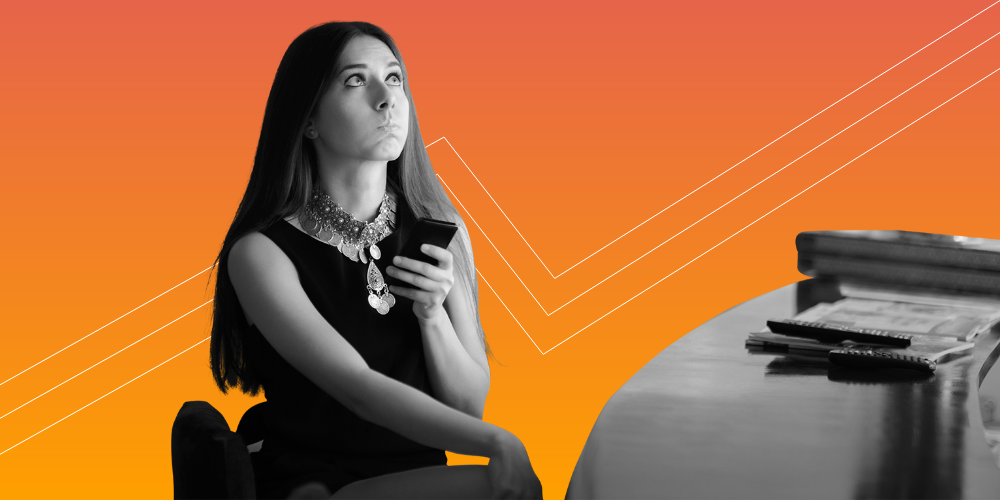Bad credit loans are personal loans for individuals with low credit scores or no credit. Borrowers typically use these loans for financial emergencies, such as medical bills, car repairs, job loss, and debt consolidation. It is for individuals whose credit score isn’t high enough to receive a loan from a traditional financial institution.
Bad credit loans work the same way as personal loans; individuals borrow money from these lenders and typically pay the loan back in fixed monthly installments.
You can get a traditional personal loan from a bank, credit union, or online lender. However, banks and credit unions often have stringent credit score standards in place for borrowers. These entities will review your credit history to determine if you qualify for a loan.
Many financial institutions require a good or excellent credit score (a FICO score of 670 or higher) to qualify for a personal loan and will offer lower interest rates to these borrowers. Borrower requirements will vary depending on the lender and your creditworthiness.
Because bad credit loans are for people with a poor or limited credit history, they may come with restrictions, such as rigorous monthly payment terms, long waits for loan approvals, higher interest rates, and other additional fees and penalties.
Review your credit report
After running a credit check to learn your credit score, you’ll have a starting point to find a lender that will be a potential match for your credit history.
Explore lender options
Compare loan terms online and find the best personal loan lender for you. Lenders sometimes prequalify borrowers to give them an idea of whether they qualify for a loan and the terms available to them. Prequalifying for a loan won’t typically impact your credit score.
Collect your application information
Most lenders will require the following if you apply for a loan: your annual income, the name of your employer and the length of time you’ve worked there, your Social Security number, your debt-to-income ratio, a summary of your household expenses, and if you rent or own your home.
Apply for the loan
After you’ve identified the loan that is the best fit for you, it’s time to apply -- but start with just one loan application. It’s best practice to apply for one loan at a time. Applying for many loans at once in a short period of time can lower your credit score, which will decrease your chances of receiving approval for the loan and increase your interest rates.
What is bad credit?
Experian, Equifax, and TransUnion are the major U.S. credit bureaus and agencies that give consumers a credit report, which is a detailed document of their credit history. Your credit report will itemize your payment history on any debts or loans you have accrued over the years, including any debts you’ve failed to pay. Using this information, the credit bureaus will summarize your credit history to assign you a numeric ranking for your credit, known as a credit score.
The major U.S. credit bureaus typically assign what is known as a FICO score. A FICO score is a credit score assigned by the Fair Isaac Corp., also known as FICO, that gives a synopsis of your credit report. To create your credit score, it compiles:
- How long you’ve had credit
- The amount you owe
- The amount of available credit you are using
- The types of credit you have (e.g., credit cards vs. installment loans)
- How much new credit you have
- If you’ve paid your debt on time
Lenders often use FICO scores to determine how likely you are to repay a loan for credit cards, auto loans, home mortgages, and more. The score can impact how much you can borrow, the repayment period (the amount of time you have to pay it back), the interest rate for the loan, or even if you qualify for the loan at all. If you have a bad credit score, it will negatively impact the terms of your loan or if you can qualify.
Bad credit can impact your loan eligibility. Consumers with bad credit may have fewer loan options, have difficulty being approved for credit cards, and pay higher interest rates.
What is a bad credit score?
Credit scores inform lenders of your creditworthiness. People with FICO credit scores of less than 580 are viewed by financial institutions as risky borrowers. The lower your credit score, the higher the risk and the less likely creditors will lend to you.
FICO credit score ranges
| Exceptional credit |
800 or higher |
| Very good credit |
740-799 |
| Good credit |
670-739 |
| Fair credit |
580-669 |
| Poor credit |
Any score below 580 |
How do bad credit loans work?
Bad credit loans are installment loans paid over time with a specific number of regularly scheduled payments. An installment loan is similar to an auto loan or a fixed-rate mortgage.
Secured Loans vs. Unsecured Loans
Secured loans
To receive a secured loan, people will give a lender collateral, such as a home, car, or other valuables. If you fail to make payments, the lender can repossess the asset you put up for collateral. Secured loans can be large, as the lender is required to match the value of the collateral the borrower offers. A mortgage is one example of a secured loan.
Secured loans are easier for consumers with bad credit to obtain. Since collateral is a requirement for obtaining a secured loan, they are less risky to lenders.
If the lender reports payments to a credit bureau, a borrower could see an improvement in their score. However, not all secured loans boost a borrower’s credit.
Unsecured loans
Some personal loans don’t require collateral, making them unsecured loans.
Because there is no collateral requirement for these loans, lenders will usually charge higher interest rates, making them more expensive than secured loans. The amount you can borrow with an unsecured personal loan is also limited.
If a borrower defaults on an unsecured loan, the lender can take the borrower to court or sell their debt to a collection agency.
How long is the approval process to get an unsecured loan?
The time it takes to receive your funds from an unsecured loan will depend on the lender. Some lenders may deposit funds into your bank account as soon as the same business day.
How much can I borrow with a bad credit loan?
The amount you can borrow will depend on your financial situation, credit history, and lender. It is advisable not to borrow more money than you need so you can pay less interest and fees.
How much will my bad credit loan cost?
The total cost of your loan will depend on how much money you borrow, the repayment terms, and other factors, such as the annual percentage rate, also referred to as APR.
Most loans have an APR, which is the cost you pay to borrow money for one year. An APR is based on the loan amount, monthly interest rate, fees, and length of time it takes you to pay back what you borrowed. Typically, bad credit loans have higher APRs.
Making your loan payment on time is important to avoid late fees and other costly penalties that can arise from missing payment deadlines.
Are bad credit loans safe?
If you decide to obtain a bad credit loan, make sure you trust the loan company or lender.
Below are protocols you can take to educate yourself about lenders before making a credit inquiry.
- Check the lender’s reviews on Google
- Check the lender’s BBB rating
- Check the lender’s website for payment requirements
Some lenders charge origination fees and other costs. If you’re considering a loan from such a lender, you’ll want all fees to be prominently displayed and explained. Always be willing to ask questions about what you don’t understand.
5 scams and risks to look out for when choosing a bad credit loan
Legitimate lenders never guarantee you will receive a loan before you apply. The following warning signs can help you determine untrustworthy lenders.
- The lender isn’t concerned with your credit history
If a lender is not concerned about your credit history, that should be a red flag. Lenders typically look at your credit history and verify information during their application process before offering a credit guarantee. This demonstrates that a lender is looking closely at your application and file, rather than indiscriminately lending to anyone and everyone who applies.
If a lender demands personal information like a Social Security number or bank account number and doesn’t mention they will be obtaining your credit history as part of the application, it’s best to use a different lender.
Not all lenders will use a hard credit check via FICO when checking your credit history. Some lenders run a soft credit check or a type of credit check that won’t impact your FICO score.
- The loan is offered via phone
In the United States, it is illegal for companies who conduct business over the phone to provide you with a loan or credit card and to ask you to pay for the loan before it’s given to you. Loan agreements should be in writing and disclose the terms of the loan to you.
- The lender’s name is similar to another well-respected organization
It’s common for organizations that are not operating ethically to give their companies names that are similar to other prominent organizations. If you’re unsure whether a company is legitimate, try to find a physical address for the organization that is not a P.O. Box in addition to a phone number from a phone directory.
- The lender is unregistered in your state
In order for a lender or loan broker to conduct a legitimate operation, they may need to be registered in the same state as their operations. You can check the registration for a business by contacting your state Attorney General or state department of financial regulation.
- A lender asks you to wire money or pay a specific person
Legitimate lenders won’t ask you to pay a specific individual directly. Non-reputable lenders will ask for money upfront to cover fees or other charges. If a lender requires you to wire an advance payment for the loan in order to process paperwork, the lender probably isn’t part of a reputable operation. It’s best to not send a company money upfront.
What loans can I get with bad credit?
Payday Loans
A payday loan is a short-term loan. They are also known as cash advance loans. Borrowers will pay a fee to borrow money for a short period of time, such as a week.
To receive a payday loan, individuals will write a check for the loan amount they want to borrow plus an additional lender fee. In exchange, the borrower will receive the loan amount in cash or as an electronic deposit. The payday lender holds onto the postdated check until your next payday, which is usually when the loan amount and fee are due.
If the borrower can’t pay within the due date, the debt will continue to build up until they can pay it off. Annual interest rates for payday loans can go up to 400% of the original loan amount.
These types of loans are typically very expensive. Payday loans should be seen as a last resort for consumers who don’t have any other ways to borrow money.
Credit Union Payday Alternative Loans (PALs)
To receive a payday alternative loan, you must be part of a credit union. These loans are offered to federal credit unions that are a part of the National Credit Union Administration.
PALs are typically less expensive than traditional payday loans and allow borrowers to repay the loan over a couple of months instead of in a single pay period. PALs have an interest rate cap of 28%.
Auto Title Loans
Auto title loans are small loans for a short amount of time. To receive this type of loan, you give the title for your car, truck, or motorcycle as collateral to your lender and pay a fee.
Most auto title loan terms will require you to repay the loan in 30 days. If you fail to pay, the lender can repossess your vehicle. The lender can also choose to extend the terms of your loan for another 30 days, also known as rolling over the loan. Typically, you will pay an additional fee to roll over the loan.
Auto title loan lenders can charge a hefty fee, even up to 25% of the amount you’re borrowing.
How to build credit to get a better loan
If you want to be seen as a less risky borrower to lenders and have better terms for your loan offer, the best way to start is to improve your credit score. Find out your FICO score to start this process and to better understand how to tackle a credit-building plan.
Below are four tips to help improve your credit so you can receive better loan terms.
- Avoid late payments
Payment history is an important part of your credit score. Factors such as paying bills late, having accounts referred to collections, or declaring bankruptcy can impact your score negatively and appear on your credit report.
If you’ve missed payments in the past, get current on your account balances. While it may take time, the longer you pay on time, the stronger your credit score will become.
- Pay off account balances
Keeping account balances low can help improve your score, as having a high outstanding debt can negatively impact your score. Owing a lot of money to creditors can hurt your credit history.
- Consider keeping old accounts open
The age of your open credit accounts is a complicated factor for credit scoring.
Though generally the longer you have good standing accounts remain open, the better. The credit bureau TransUnion says the following: “ Remember, accounts that have been open for a long time, and those with high credit limits but low balances, may have a positive impact on your credit score."
- Don’t max out what you owe
The amount of debt you have compared to your credit limit is used to create your credit score. If the amount you owe is too close to your credit limit, it can negatively impact your credit score.
Can bad credit loans improve your credit?
Bad credit loans can be used to improve your credit history, especially if you don’t have an extensive amount of credit history. Select an affordable loan and use a lender that reports payments to the major credit bureaus.
If you borrow a bad credit loan from a lender that reports your payments to credit bureaus and you pay it on time, it may result in a positive impact on your credit report. It’s important to make payments on time to prevent negative reporting for making late payments.



